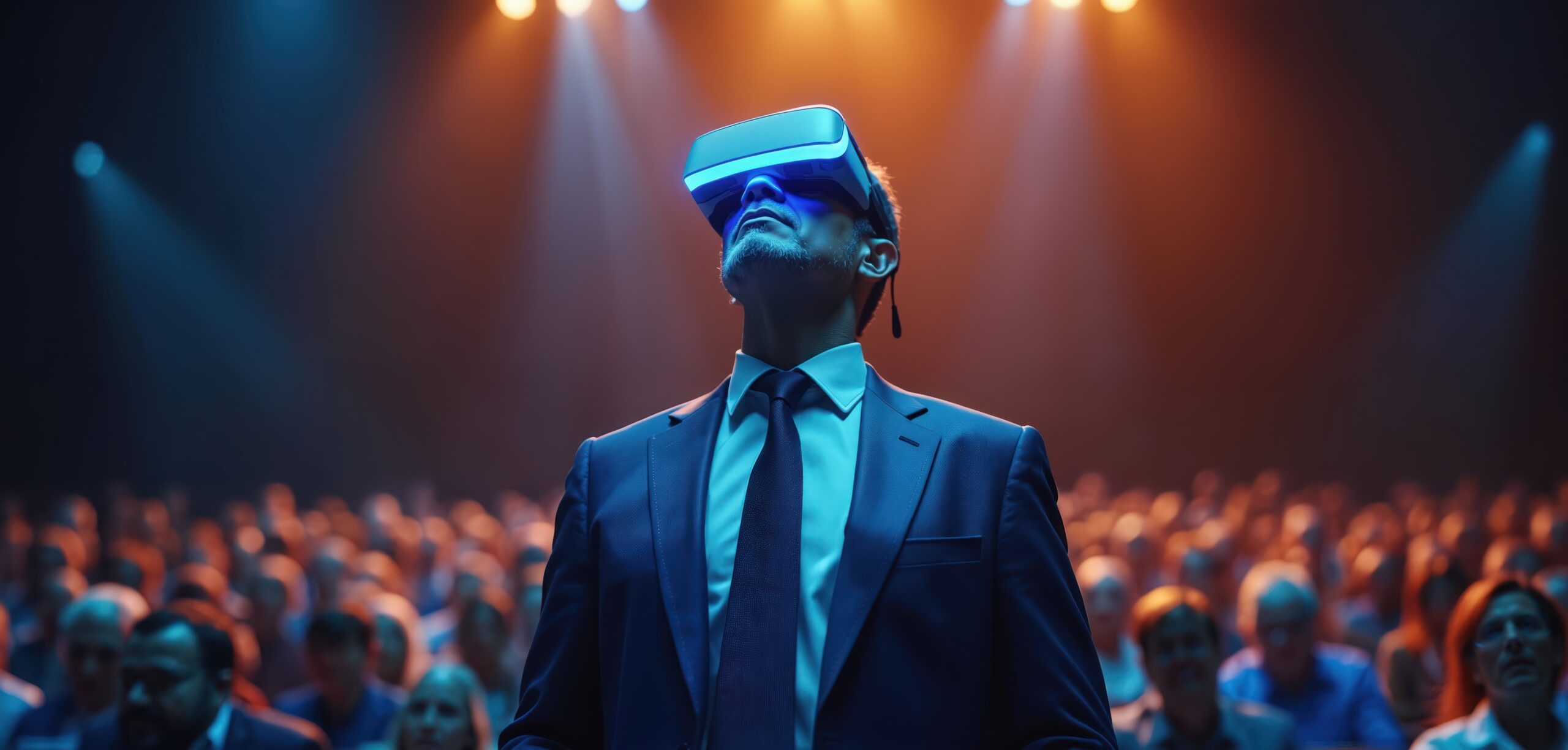 Back in 1997, Deep Blue (an IBM computer) defeated Garry Kasparov, the world chess champion at the time, in a six-game match with a final score of 3.5-2.5 in favor of Deep Blue.
Back in 1997, Deep Blue (an IBM computer) defeated Garry Kasparov, the world chess champion at the time, in a six-game match with a final score of 3.5-2.5 in favor of Deep Blue.
Almost 20 years later, in 2016, Google's AlphaGo program achieved a similar victory by defeating Lee Sedol, one of the world's top professional Go players, in a five-game match with a final score of 4-1.
Artificial intelligence and machine learning have been around for decades, yet they were not accessible to you and me. Now that they are, they're predicted to change marketing (and life in general) forever. Experts, insiders, and reporters expect good and bad from AI. Some predict Skynet from the Terminator movies, while others expect it to cure cancer. Ockham's razor would predict that it's probably something in the middle.
When it comes to marketing, we have been using AI since the beginnings of Google and Facebook. Both are run through algorithms.
The History of Algorithms
 The concept of algorithms was found in ancient civilizations like Babylonia and Egypt, where step-by-step procedures were used for arithmetic operations like multiplication, division, and finding square roots.
The concept of algorithms was found in ancient civilizations like Babylonia and Egypt, where step-by-step procedures were used for arithmetic operations like multiplication, division, and finding square roots.
In the 1930s, mathematicians like Kurt Gödel, Alonzo Church, Alan Turing, (and others) defined models for algorithms and computation, establishing theoretical computer science. The “Turing machine” is considered a founding concept of modern computer algorithms. It was not until the rise of personal computers, along with search and social platforms, that algorithms became part of the common lexicon.
Here is a brief timeline of search:
- 2000: Hyperlink-induced topic search algorithm developed by Jon Kleinberg for analyzing the World Wide Web's hyperlink structure.
- 2000: Google introduced the PageRank algorithm, which ranked web pages based on their link popularity, revolutionizing web search.
- 2009: Microsoft introduced the BM25 ranking function, improving relevance ranking for web search.
- 2012: Google's Penguin update targeted webspam and unnatural link practices.
 Here is a brief timeline of social:
Here is a brief timeline of social:
- 2004: Facebook launched and initially displayed posts chronologically without algorithmic filtering.
- 2014-2016: The algorithm focused on showing users more personalized, relevant content based on their interests and engagement patterns.
- 2020s: Facebook has leveraged advanced AI and machine learning to further personalize feeds for each user based on their unique behaviors and preferences.
Algorithms have evolved:
- Algorithms increasingly personalized content on social feeds based on user interests and interactions.
- Algorithms enabled real-time content filtering, recommendation systems, and targeted advertising.
- Platforms focused on maximizing user engagement through algorithms highlighting viral/popular content.
That means that what you experience on search and social is just a sliver of all available content. It may feel personalized, but it's a machine deciding results based on what the machine has been told to serve you.
The Ockham's Razor of Algorithms
 Companies and their leaders are telling us that they are working to make your experience better and part of the greater good of humanity.
Companies and their leaders are telling us that they are working to make your experience better and part of the greater good of humanity.
Search is supposed to provide the best answer to your search prompt, and social media is supposed to serve the content you want to see. In reality, it's more about profits than principles.
Search is optimized to get you to click ads—that's how Google makes over 75% of its revenue. Facebook feeds your friendships and shows posts meant to stir the pot and keep you engaged. Facebook makes over 95% of its profits from ad sales.
Ockham's razor would show us that trying to find and win customers through search and social media would benefit the platform more than you. It's like a casino with all that noise of winners on its machines, but the odds have been programmed to make the casino much more money than it's paying out!
So, SEO (search engine optimization), SEM (search engine marketing), and Facebook ads may seem like the best ways to compete in today's digital landscape, but the algorithms are just slot machine programs. You can research keywords, target audiences, and even outbid your competition (if you can afford it), but in the end, the algorithm is programmed to help the casino win.
The bottom line is you are trying to reach people (the right people) who would make good customers for your business, but it's the machines that are choosing who actually sees what you are paying to promote.
So, how can you overcome this obstacle? Through Organic Marketing.
Organic Digital Marketing
 Organic digital marketing is a blend of old-school with the benefits of digital technologies. Digital marketing is a one-to-many philosophy where if you show your content to enough people, they will self-segment and reach out if they are interested. Organic marketing means acquiring and controlling the list of people you are reaching. Usually, these are current, past, and prospective customers who have already self-identified that they are interested in your products, services, and business.
Organic digital marketing is a blend of old-school with the benefits of digital technologies. Digital marketing is a one-to-many philosophy where if you show your content to enough people, they will self-segment and reach out if they are interested. Organic marketing means acquiring and controlling the list of people you are reaching. Usually, these are current, past, and prospective customers who have already self-identified that they are interested in your products, services, and business.
Organic Digital Marketing uses digital tools, including SEO and SEM (ads), to consistently communicate with people who know, like, and hopefully trust you already.
That means you are in charge of collecting names and data and then using email and social media to present your information to them. They have the ultimate control to subscribe and unsubscribe from email lists and connect or not to your social channels, but you know them, and they know you. You control who sees what (as much as you can).
By creating thought leadership focused-content and distributing small digestible bites through email and social posts, you can entice people to consume the full content and more on your website. This overcomes the loss of control that search tries to convince you that you have. Social is still subject to algorithms, but you can improve your odds by sharing content across multiple profiles, pages, and platforms.
Once on your website, you can further entice people to download additional information by trading their contact information for high-quality content that they feel is worthy of the trade. You can even track their journey.
We use a technology called a “DECISION TREE” to track visits and identify specific people once they self-identify by filling out any form on your website. This data can then be downloaded and used in CRMs, ERPs, and email programs to track future conversations.
Closing Thought
 I am not trying to say that SEO, SEM, or social media marketing is a waste of time. What I am saying is that you have to use Ockham's razor to find a middle ground between living under a rock (using newspapers and Yellow Page ads) and going full tilt and betting the farm on paid advertising or trying to game the system.
I am not trying to say that SEO, SEM, or social media marketing is a waste of time. What I am saying is that you have to use Ockham's razor to find a middle ground between living under a rock (using newspapers and Yellow Page ads) and going full tilt and betting the farm on paid advertising or trying to game the system.
At the time of this writing, the top six companies by market cap (stock value) include Microsoft, NVIDIA, Apple, Google, Amazon, and Meta (Facebook). All of which have $1-3 TRILLION (+) in value. You will face difficulty outsmarting any of those companies or their algorithms. However, you can outsmart your competition by injecting organic marketing principles into your overall sales and marketing game plan.
By using organic digital marketing in your business, I imagine that Deep Blue and AlphaGo won't be able to beat you and your relationship marketing game!
______________________________
Comment below and share your thoughts, ideas, or questions about business-to-business sales and marketing today! Do you have a sales or marketing communications strategy that works for you? What tips or techniques can you share that work for you and your business?
To learn more about this and other topics on B2b Sales & Marketing, visit our podcast website at The Bacon Podcast.








